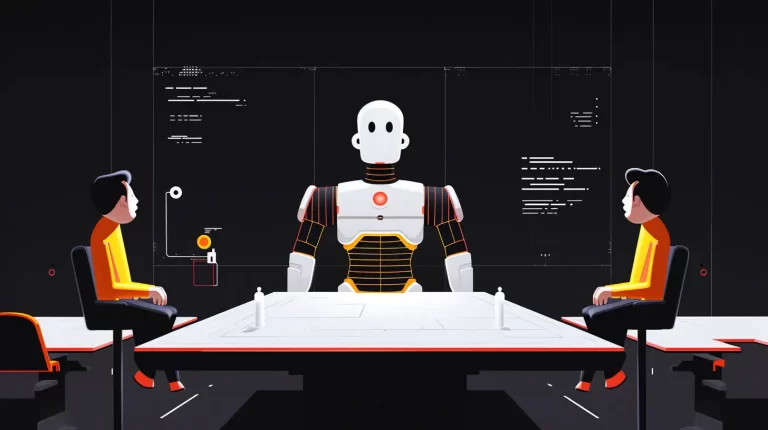
(Source)
The Problem of Court Congestion
Many state and federal courts across the country are experiencing congestion and backlog. In 2023, over three-quarters of judges and court professionals reported delays in hearings. Even in the post-pandemic era with virtual court proceedings, online jury selection, and court data dashboards, courts still encounter severe difficulties in hearing cases in a timely manner. In fact, the pandemic exacerbated pre-pandemic delays, and courts continue to struggle with insufficient funding, judicial vacancies, lawyer shortages, and delays in processing digital and physical evidence. These issues afflict both civil and criminal cases. Judge vacancies, in particular, affect all cases, and in New York City, lower court judges are subsequently forced to handle cases beyond their usual purview and expertise. This means that cases are being adjudicated at slow speeds and that claims are not being assessed by the correct judges.
While court backlogs affect all cases, they pose particular uncertainty for criminal defendants. The Sixth Amendment guarantees the right to a speedy trial in all criminal prosecutions. Further, a foundational principle of criminal law establishes that all defendants are presumed innocent until proven guilty. More than 400,000 people are currently being held in pre-trial custody, all of whom are to be presumed innocent yet nevertheless awaiting trial behind bars. Court backlogs will only keep these individuals incarcerated longer and infringe on their Constitutional right to a speedy trial. Despite violations of constitutional and fundamental rights, pretrial detention is linked to a higher likelihood of new criminal arrests, which will further contribute to the backlog of cases.
Given the precarious position of criminal defendants, courts have often prioritized criminal trials over civil ones. Civil cases then will see increased postponement, negatively impacting the parties’ interest in seeing their issues resolved in a timely fashion.
Accordingly, this article assesses the ways in which AI mediation may serve to ease civil case backlog and provide speedy resolution on cases that may be better suited for settlement.
Importance of Mediation within Courts
Alternative dispute resolution (ADR) strategies encompass mediation, arbitration, negotiation, and collaborative law to find mutually acceptable solutions for all parties involved in disputes. ADR has already become an integral part of many court systems.
Mediation refers to a dispute resolution setting where a neutral “mediator” helps parties reach a mutually acceptable resolution of the dispute. It can enhance communication, assist in understanding each party’s motivations, save time and money, address non-legal concerns that matter to individuals in conflict, and result in more enduring agreements. This approach is particularly effective for conflicts involving family members, neighbors, and business associates, especially in situations where preserving relationships is a priority.
New Jersey, for instance, has integrated mandatory mediation into its judicial processes in civil, general equity, and probate cases, as well as for economic aspects of family law cases. As illustrated in “Civil Mediation Program Resource Materials,” this approach has helped reduce the court’s workload, lower dispute resolution costs, and lead to faster resolution timelines. Courts in all jurisdictions should consider New Jersey’s approach to mandatory mediation. Integrating AI in mediation may also enhance the potential benefits of mediation and help address the increasing number of cases sent to mediation.
AI Mediation
Artificial intelligence (AI) has already disrupted the ADR field, providing efficient and timely analysis of vast data sets and extracting insights from text and images. Generative AI meditation chatbots can make valuable inroads in determining parties’ underlying interests and thus propose offers that all parties will view favorably. Additionally, AI meditation minimizes potential biases in negotiations, as chatbots are unaffected by the subjective factors that often influence human negotiators.
That being said, AI mediation does have its downsides. AI mediators cannot detect emotional and cultural cues. Litigation often involves more than just legal issues; it also encompasses strong emotions. Emotions are often central to legal disputes and can even be the driving cause behind them. Without the ability to manage the wide variety of emotions that arise in mediation, AI may be severely deficient.
Moreover, AI also has historically “hallucinated,” acting in bizarre and illogical manners. The risk of hallucination can jeopardize any successes that AI mediation could make. A hallucinating chatbot, for instance, could fabricate facts or create erroneous legal precedents.
Finally, AI mediation can raise issues of confidentiality, as these chatbots often learn through new data and cases. Client and confidential information could be gleaned by inputting previous cases used for these AI chatbots to adapt.
In spite of the challenges with AI mediation, robot mediators under human supervision have shown preliminary success in a Canadian case involving around 2000 euros in unpaid fees from a trainer-client relationship following a personal counseling course. The parties had previously failed to settle their case after telephone mediation with a court official. They then contacted mediator and online dispute resolution expert Graham Ross and Smartsettle ONE, an online mediation service. Through their online mediation, the parties were able to place secret bids, and the algorithm used the parties’ bids to determine the tactics and priorities of both parties. The program was able to guide the parties to a mutually agreeable settlement without revealing their secret bids. Ross said the algorithm works “to help parties avoid the negotiation dance where they put forward offers which are not their best. It also rewards the party that makes the biggest effort to settle.”
This case suggests that AI mediation programs or chatbots might be more effective than traditional human mediation. The AI mediation program was able to identify the interests of the parties involved and propose mutually beneficial solutions more effectively than the original human mediator. Additionally, it bypassed conventional negotiation methods by allowing confidential bids, which benefited the parties who were willing to reach a settlement.
Implementation Suggestions
Given the potential benefits and challenges of AI mediation, courts may consider its implementation in specific disputes. For instance, courts could integrate AI mediation in cases involving smaller claims and two parties. As the Canadian case has proved, robot negotiators may be an effective first-line intervention. Given concerns about hallucinations, courts will still need human oversight in negotiations to ensure parties do not accept hallucinated agreements and that agreements remain fair to both parties.
AI mediation has the potential to reduce the backlog of civil court cases significantly. Referring cases to mediation—whether it involves AI or human mediators—can help alleviate this backlog. Furthermore, AI mediation may represent an important advancement in achieving quicker resolutions. Thus, if more cases are directed toward non-AI mediation, a backlog of mediation cases could develop, which could be resolved by implementing AI mediation.
AI mediation can address the very root causes of court congestion. For instance, mediation is already a more cost-efficient option than litigation, and it is very possible that AI mediation could further reduce costs. AI mediation additionally does not require significant judicial oversight, and parties may not need to pay significant lawyer costs. AI mediation can further help with the processing of digital evidence.
AI mediation could further increase the opportunities for crucial criminal cases to be heard. If more civil cases are referred to AI mediation, this can reduce court backlogs and allow for criminal cases to be heard at a faster rate. Further research can also be done to consider whether AI mediation can be implemented in the criminal context.
Suggested Citation: Jessica Rosberger, AI Mediation for Reducing Court Congestion, Cornell J.L. & Pub. Pol’y, The Issue Spotter, (Nov. 26, 2024), https://jlpp.org/ai-mediation-for-reducing-court-congestion/.

College of Arts and Sciences with a major in American Studies and minors in Inequality Studies and Law and Society, and was admitted as part of the 3+3 Pathway Program. In addition to her involvement with the Cornell Law Journal of Public Policy, she is the President and Founder of the 3+3 Student Association, Vice President of Internal Affairs of Lawyers Without Borders, and Social Chair of the Jewish Law Students Association.

